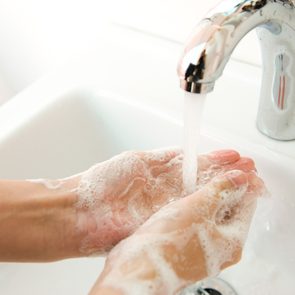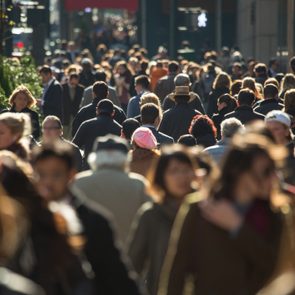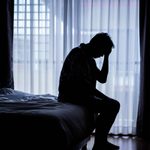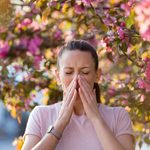Coronavirus Face Masks: 9 Things Doctors Need You to Know
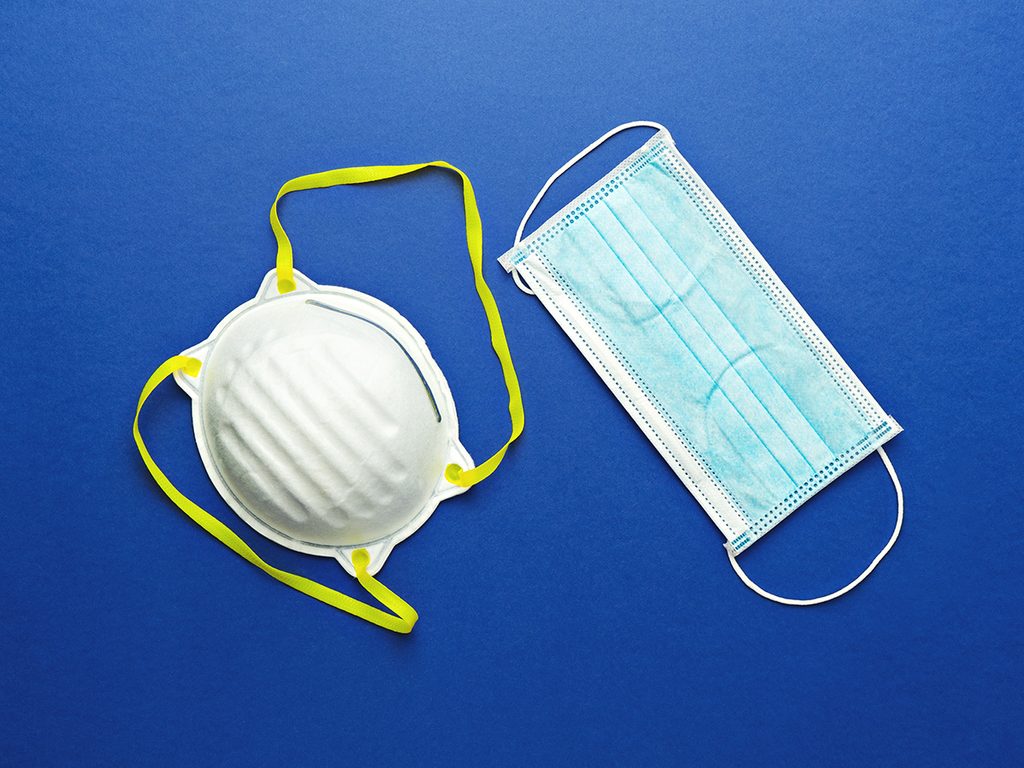
If you think face masks will protect you against coronavirus, think again. Here's what doctors want you to know about face masks, N95 respirators, and the best ways to avoid Covid-19.
Published Mar. 6, 2020
The number of coronavirus cases around the globe is ticking up almost hourly and people are understandably concerned about catching it themselves. As of March 5, Johns Hopkins University‘s coronavirus tracker reports 95,000-plus confirmed cases with more than 3,000 deaths worldwide. (Find out the difference between an epidemic and a pandemic.)
News photos and footage of scores of people in China, Italy, and elsewhere wearing face masks may lead you to believe this is the best way to protect yourself from the infection, officially called Covid-19. Think again. Here’s what doctors need you to know about what face masks can and cannot do and how to use them effectively:
A mask is not a respirator
The masks you see in the news are almost always dust masks or surgical masks, not respirators. There’s a big difference, although they can look similar at first glance.
“A face mask is a lose-fitting disposable device that creates a barrier between the mouth and nose and the external environment,” explains Meghan McGinty, PhD, affiliate assistant professor of environmental and occupational health sciences at the University of Washington School of Public Health. “They’re not intended to protect you against respiratory illnesses. They’re typically meant to prevent you from inhaling large particles like dust particles.”
Respirators, on the other hand, are meant to protect you from smaller particles like viruses. They’re worn by healthcare professionals in healthcare settings all the time. An N95 mask, which you’ve probably read about, blocks at least 95 per cent of very small particles, and that can include bacteria and viruses, according to the Centers for Disease Control and Prevention (CDC).
You can check out the CDC’s infographic comparing surgical masks and N95 respirators, which shows how they differ, how they should be used (and discarded), and what they look like side by side.
Healthy people don’t need face masks
“In general the advice is that nobody should be wearing a mask unless directed by an individual healthcare provider,” says Dr. McGinty “The masks are more effective when used by people who are actually sick than by the general population.”
There is an exception. WHO does recommend wearing them if you’re taking care of someone who is suspected of having the new coronavirus.
The CDC recommends that anyone who has confirmed or suspected Covid-19 wear a face mask until they are isolated or quarantined. Then they can take it off.
Learn the basics about the current outbreak.
Masks won’t protect you from viruses
Because face masks aren’t fitted, viral particles can easily get in, under and around them and end up in your respiratory system.
“A traditional general face mask like you might use for construction in your house is not going to protect you against coronavirus or other respiratory infections,” says Dr. McGinty. “It’s not designed to filter those particles and you don’t get a tight seal around your face. Particles can come in on the sides and underneath and be inhaled and you can still get exposed.”
“The scientific basis showing that people in the community wearing surgical masks actually offers some benefit in terms of protection is scanty to non-existent,” says William Schaffner, MD, an infectious diseases specialist with Vanderbilt University Medical Center in Nashville. “If they really helped, wouldn’t the CDC recommend we all wear them during influenza season?”
Masks “leak”
And this is how viruses can get in. Because masks are loose-fitting, smaller particles (like viruses) can get through. “You can breathe around the edges,” says Dr. Schaffner.
By contrast, respirators are sturdier, thicker and have to be fitted to the person wearing them so as to prevent any particles slipping through. In fact, according to the CDC, people who wear respirators for work are required to have the fit checked annually and the seal checked before each use. If all is working well and there are no leakages, all incoming air will be filtered. In fact, when used properly, respirators are uncomfortable as they make it difficult to breathe, says Dr. McGinty.
“These clearly should not be worn by the average person,” says Dr. Schaffner. “They haven’t been trained to put them on correctly and we need to reserve them for healthcare personnel.” So that means that although you can buy N95 respirators—don’t. That means they will be in short supply (or even unavailable) for people in high-risk situations—like healthcare workers—who need to protect themselves (more on that below).
Masks may help stop your germs from spreading
While face masks won’t protect you from viral illnesses, they may help protect others from any respiratory symptoms you may have, says Dr. Schaffner. The World Health Organization does advise wearing a mask if you’re coughing or sneezing.
That said, if you do have symptoms, don’t go to work even if you do have a mask. “It’s wrong thinking,” says Dr. Schaffner. “The masks will help prevent you from giving [an infection] to someone but it’s not enough to give you a license to go to work.”
(Here are myths about the coronavirus outbreak.)
Face masks also need to be used correctly
Masks may only have limited benefit but you still need to know how to use them. For masks to be effective at all, they must cover your mouth and your nose, not just one or the other, says Dr. Schaffner. They also don’t work if you lift them up to talk to someone or to scratch an itch. They’re also not intended to be used if you have facial hair, says Dr. McGinty.
WHO also has a clear protocol (and a video) for how to correctly use a mask, including putting them on, taking them off and disposing of them. Among other things, the organizations stresses that you should wash your hands with soap and water before use, make sure there are no gaps between your skin and the mask, and avoid touching the mask with your hands while you are using it.
Single-use masks should not be reused, and they should be replaced if they get damp. When removing the mask, don’t touch the front of it, rather, you should remove it from behind, discard immediately in a closed bin, and wash your hands with soap and water (or an alcohol-based rub if you don’t have soap and water).
Masks may create a false sense of security
First of all, masks are not effective at keeping out viruses. Plus, few people know how to use them correctly.
“People feel they have a sense of protection but then they do things like touch dirty stuff then touch their eyes or nose or mouth,” says Dr. McGinty. That’s the kind of exposure that can make them sick, he says.
At this time, the CDC believes the new coronavirus spreads primarily from person to person through respiratory droplets expelled when an infected person coughs or sneezes. Usually, people need to be within about six feet of each other. A secondary route of transmission may be by touching a surface or object with the virus on it then touching your mouth, nose, and possibly eyes.
(Here’s what you need to know about coronavirus in Canada, according to a germ scientist.)
Healthcare workers need respirators more than you do
Way more. Respirators are flying off store shelves and that’s not good for any of us. “N95 respirators are critical resources in healthcare facilities,” says Dr. McGinty. Respirators are needed every day in hospitals and are critical during an outbreak such as this one.
“Now that we’re seeing potentially widespread community transmission, facilities desperately need these masks and have a very small supply,” she adds. “Any community use of them is harmful to the collective response.”
The public should also not be buying surgical masks. Not only do they not protect you from coronavirus, but they’re also needed in healthcare settings daily, adds Dr. McGinty.
(This is how much the coronavirus is costing the world—so far.)
Washing your hands is better than a face mask
Washing your hands with soap and water for 20 seconds at a time is the best way to avoid contracting coronavirus. “I tell people you should be washing before you cook or serve food and after you use the bathroom; I wash my hands every time I return home,” says Dr. McGinty. “That is more effective than wearing a face mask.”
If soap and water aren’t available, an alcohol-based hand sanitizer will do. You should also avoid people who are sick, Dr. McGinty adds. If you’re sick, avoid crowded places, says the CDC.
Find out more diseases you can prevent simply by washing your hands.

